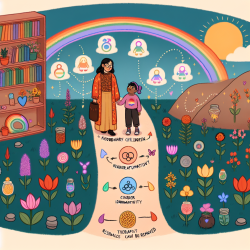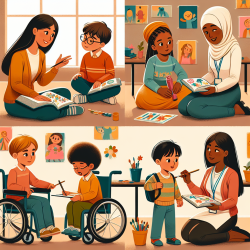Understanding the Complexities of Parental Caregiving for Children with Medical Complexity
In the realm of special education and therapy services, understanding the nuanced experiences of parental caregivers for children with medical complexity (CMC) is crucial. The research article, "The Experience of Parental Caregiving for Children With Medical Complexity," sheds light on the multifaceted challenges these caregivers face and offers valuable insights for practitioners aiming to enhance their support strategies.
The Four Domains of Caregiver Experience
The study identifies four major domains affecting parental caregivers: personal, family, social, and financial. Each domain encompasses unique challenges that practitioners must consider when working with these families.
- Personal: Caregivers often experience a shift in identity, where roles such as advocate and medical educator overshadow their identity as a parent. Physical and mental health issues, including depression and anxiety, are prevalent due to the demands of caregiving.
- Family: Marital relationships can be both a source of support and stress, with limited time for partners and siblings leading to potential family strain.
- Social: Time constraints and the isolating nature of caregiving can lead to social withdrawal, limiting engagement with friends, family, and community.
- Financial: Employment challenges and high medical costs create significant financial burdens, often requiring caregivers to make difficult sacrifices.
Core Determinants of Resilience
Despite these challenges, the study highlights two core determinants of resilience among caregivers: support from others and maintaining a positive outlook.
- Others’ Support: Hands-on assistance from family, friends, and professional services, as well as emotional and informational support, are critical in alleviating the burden of caregiving.
- Positive Outlook: Self-efficacy, self-compassion, and reframing expectations help caregivers maintain a resilient mindset. Encouraging caregivers to focus on their strengths and the positive aspects of their situation can foster resilience.
Implications for Practitioners
Practitioners can play a pivotal role in supporting parental caregivers by implementing strategies that address these domains and enhance resilience. Here are some practical steps:
- Facilitate access to support networks, including respite care and peer support groups.
- Provide comprehensive care plans and clear communication to reduce informational burdens.
- Encourage self-care practices and provide resources for mental health support.
- Advocate for financial assistance programs and educate families on available resources.
Encouraging Further Research
While this study provides valuable insights, further research is needed to explore the unique needs and strengths of caregivers for CMC. Practitioners are encouraged to engage in ongoing research and dialogue to better support this vulnerable population.
To read the original research paper, please follow this link: The Experience of Parental Caregiving for Children With Medical Complexity.










